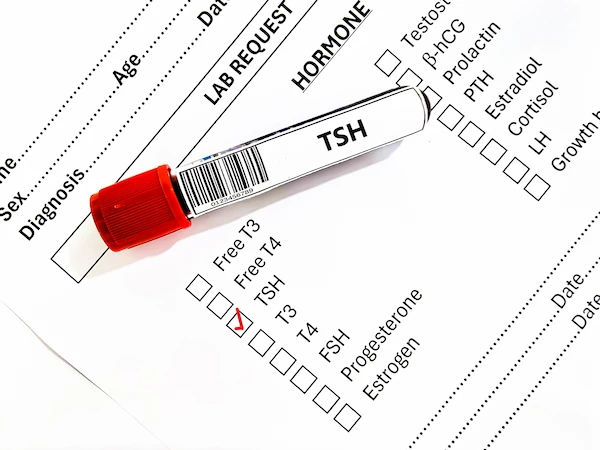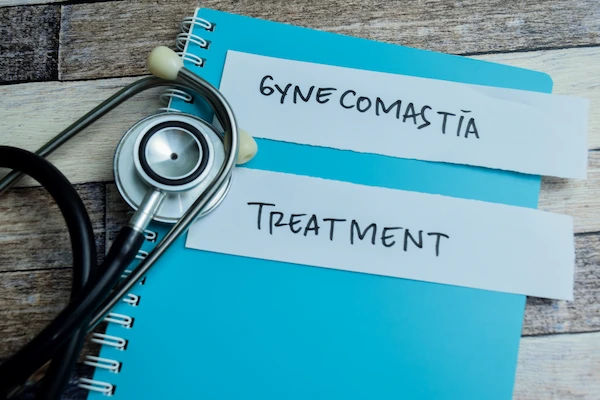Thyroid Tests Overview and Guidelines
Get a complete overview of thyroid tests, including TSH, T3, T4, antibody tests, and ultrasounds. Learn when to get tested, how to prepare, and why early detection is key to managing thyroid health.

Written by Dr. Mohammed Kamran
Reviewed by Dr. Shaik Abdul Kalam MD (Physician)
Last updated on 29th Aug, 2025

The thyroid is a small, butterfly-shaped gland in your neck that plays a crucial role in regulating your metabolism, energy levels, and overall health. When the thyroid isn’t functioning properly, it can lead to various health issues. Thyroid tests help diagnose these problems early, ensuring timely treatment.
If you’ve been feeling unusually tired, gaining or losing weight without reason, or experiencing mood swings, your doctor may recommend thyroid tests. This article will guide you through the different types of thyroid tests, why they’re important, and how to prepare for them.
Why Are Thyroid Tests Important?
Thyroid disorders, like hypothyroidism (underactive thyroid) or hyperthyroidism (overactive thyroid), can affect your energy, weight, heart rate, and even mental health. Early detection through thyroid tests helps in managing these conditions effectively.
Common symptoms that may indicate a thyroid problem include:
- Fatigue or weakness
- Unexplained weight changes
- Hair loss or dry skin
- Mood swings, anxiety, or depression
- Irregular heart rate
- Muscle aches and joint pain
If you experience any of these symptoms, consulting a doctor and getting tested is essential.
Common Thyroid Tests
Several blood tests help assess thyroid function. The most common ones include:
1. TSH (Thyroid-Stimulating Hormone) Test
- What it measures: TSH is produced by the pituitary gland and signals the thyroid to produce hormones (T3 and T4).
- Why it’s done: High TSH levels may indicate hypothyroidism, while low levels suggest hyperthyroidism.
- Normal range: Typically 0.4 – 4.0 mIU/L, but this can vary slightly between labs.
2. Free T4 (Thyroxine) Test
- What it measures: T4 is the main hormone produced by the thyroid. The "free" T4 test measures the active form
available in the blood. - Why it’s done: Helps confirm if thyroid hormone levels are too high or too low.
- Normal range: Approximately 0.8 – 1.8 ng/dL.
3. Free T3 (Triiodothyronine) Test
- What it measures: T3 is another thyroid hormone that affects metabolism.
- Why it’s done: Useful in diagnosing hyperthyroidism when T3 levels are elevated.
- Normal range: Around 2.3 – 4.2 pg/mL.
4. Thyroid Antibody Tests
- What it measures: Checks for antibodies that attack the thyroid, seen in autoimmune disorders like Hashimoto’s
thyroiditis or Graves’ disease. - Why it’s done: Helps diagnose autoimmune thyroid conditions.
5. Thyroid Ultrasound or Scan
- What it checks: Used to detect nodules, cysts, or structural abnormalities in the thyroid.
- Why it’s done: If a lump is felt in the neck or if blood tests suggest an issue.
Get Your Health Assessed
Who Should Get Tested?
You may need thyroid testing if:
- You have symptoms of thyroid dysfunction.
- There’s a family history of thyroid disorders.
- You’re pregnant (thyroid health affects fetal development).
- You have an autoimmune disease (like Type 1 diabetes or rheumatoid arthritis).
- You’re on thyroid medication and need monitoring.
How to Prepare for Thyroid Tests
- Fasting: Usually not required, but some doctors recommend fasting for accurate results.
- Timing: TSH levels are highest in the morning, so early testing may be preferred.
- Medications: Inform your doctor about any medicines (especially thyroid drugs, biotin, or steroids) as they can affect
results.
Managing Thyroid Health
If diagnosed with a thyroid disorder, lifestyle changes can help:
- Balanced Diet: Include iodine-rich foods (seafood, dairy), selenium (nuts, eggs), and zinc (legumes, seeds).
- Regular Exercise: Helps regulate metabolism and energy levels.
- Stress Management: Chronic stress can worsen thyroid function; practice yoga or meditation.
- Regular Check-ups: Monitor thyroid levels as advised by your doctor.
When to See a Doctor?
If your test results are abnormal, or if symptoms persist, consult an endocrinologist for further evaluation. Early
treatment can prevent complications like heart disease, infertility, or severe fatigue.
Book a Thyroid Test with Apollo 24|7
Worried about thyroid issues? Apollo 24|7 offers convenient at-home thyroid tests and expert consultations. Schedule
your test today for accurate diagnosis and personalized care.
Conclusion
Thyroid health plays a vital role in maintaining overall well-being, and timely testing ensures early detection of any imbalances. With proper diagnosis and treatment, most thyroid disorders can be effectively managed, helping you maintain a healthy and active life.
Consult an Endocrinology for the best advice
Consult an Endocrinology for the best advice

Dr. Shiva Madan
Endocrinologist
10 Years • MBBS , MD (General medicine) , DM (Endocrinology)
Bikaner
Sushma diabetes and Endocrine center, Bikaner

Dr. Arunava Ghosh
General Physician/ Internal Medicine Specialist
10 Years • MBBS,MD(GENL.MED.),DM(ENDOCRINOLOGY)
Kolkata
VDC Clinic, Kolkata

Dr. Nilotpal Mitra
General Physician/ Internal Medicine Specialist
21 Years • MBBS, PGDGM ( Geriatric Medicine), ACMDC (an Advance course in Diabetes and cardiovascular diseases from PHFI and WHF )
Kolkata
MCR SUPER SPECIALITY POLY CLINIC & PATHOLOGY, Kolkata
(25+ Patients)

Dr. Anand Ravi
General Physician
2 Years • MBBS
Bengaluru
PRESTIGE SHANTHINIKETAN - SOCIETY CLINIC, Bengaluru

Dr. E Prabhakar Sastry
General Physician/ Internal Medicine Specialist
40 Years • MD(Internal Medicine)
Manikonda Jagir
Apollo Clinic, Manikonda, Manikonda Jagir
(175+ Patients)




.webp)

